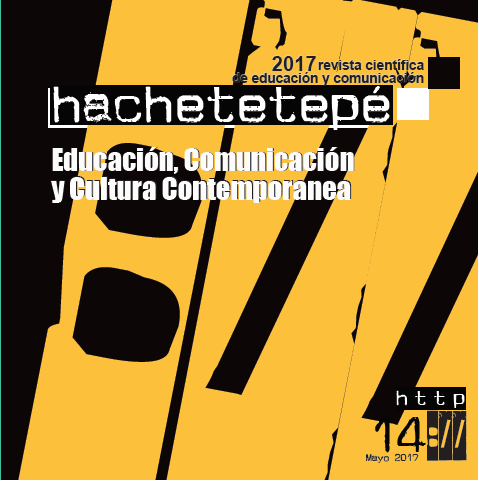La escuela frente a la generación millennials

DOI
https://doi.org/10.25267/Hachetetepe.2017.v1.i14.10Informação
Resumo
En la actualidad se identifican estrategias educativas vinculadas al uso de la tecnología para la comunicación. Sin embrago, hoy en día, se tienen estudiantes universitarios y docentes de la llamada generación millennials, que han tenido influencia de estos medios por lo que están hiperconectados, al mismo tiempo que se reconocen capaces de realizar lo que se propongan. Estas características hacen necesaria el desarrollo de estrategias incluyentes que rescaten el uso de la tecnología que es de gran interés para estos alumnos pero, al mismo tiempo, no se olviden de aquellos que no cuentan con el manejo de dispositivos y pueden ser considerados como analfabetas digitales. Por otro lado, es importante reconocer los retos a los que se enfrentan los docentes que no utilizan estos medios por lo que existe una brecha digital que limita la comunicación en las aulas; por lo cual se requiere de docentes comprometidos, incluyentes, respetuosos y dispuestos a aprender unos de otros.
Palavras-chave
Downloads
Como Citar
Licença

Este trabalho está licenciado sob uma licença Creative Commons Attribution-NonCommercial-NoDerivatives 4.0 International License.
Os autores que publicaram com esta revista, aceitam os seguintes termos:
1. Manterão seus direitos autorais e garantirão à revista o direito à primeira publicação de seu trabalho, que estará simultaneamente sujeita à Licença de Atribuição Creative Commons. Podem ser copiados, utilizados, divulgados, transmitidos e exibidos publicamente, desde que a autoria, url e revista sejam citados, e não sejam utilizados para fins comerciais. Nenhuma obra derivada é permitida.
2. Podem adotar outros contratos de licença não exclusiva para a distribuição da versão publicada da obra (por exemplo, depositá-la em arquivo telemático institucional ou publicá-la em volume monográfico), desde que seja indicada a publicação inicial nesta revista.
3. Divulgue seu trabalho pela Internet (por exemplo, em arquivos telemáticos institucionais ou em seu site) uma vez que o manuscrito seja aceito, o que pode levar a trocas interessantes e ao aumento das citações do trabalho publicado. (Veja O efeito do acesso aberto).
Hachetetepé. A revista científica de educação e comunicação não cobra taxa pela submissão de manuscritos ou pela publicação de seus artigos.
Referências
Aldape, T. (2008). Desarrollo de Las Competencias del Docente. Demanda de la Aldea Global. México: Siglo XXI. Editorial Libros en red.
Barrios Rubio, A. (2009). Los jóvenes y la red: usos y consumos de los nuevos medios en la sociedad de la información y la comunicación. Signo y Pensamiento, 28 (Enero-Junio): Recuperado de: http://www.redalyc.org/articulo.oa?id=86011409017
González R. (2015). Manual de Emergencia para Agentes de Cambio Educativo. México: Granica.
Gardner, H. (2011). La inteligencia reformulada. Las inteligencias múltiples en el siglo XXI. Barcelona: Paidós.
Pintado T. y Sánchez, J. (2014). Nuevas Tendencias en Comunicación Estratégica. Madrid: ESIC.
Vázquez, E. y Sevillano M. L. (2011). Dispositivos Digitales Móviles en Educación: El Aprendizaje Ubicuo. Madrid: Narcea.





